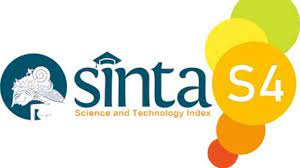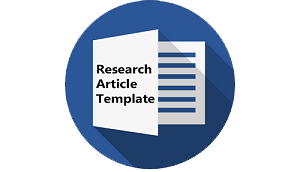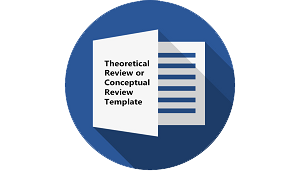EFL Teachers’ Pedagogical Practices based on Their Perception during Covid-19 Pandemic
DOI:
https://doi.org/10.30957/ijoltl.v7i1.702Keywords:
Keywords: Teachers pedagogical practices, pandemic covid 19, online learningAbstract
Abstract
The objectives of this research were to explored the English teacher’s pedagogical practices in teaching English to the students and to find how great the influence of the English teacher’s pedagogical practices to the students learning achievement. In addition, this research was conducted through qualitative approach. The data of this research were taken from 7 EFL Teachers of Tinombo District. In collecting the data of this research, the researcher used interview and document analysis instrument to the students. The interviews are aimed at getting information directly about everything that relation with teacher competence and teacher in teaching learning process. Thus, the document analysis are aimed to complete information obtained through interview.Then, after analyzing the data obtained, it was concluded that the EFL teachers’ pedagogical practices of Tinombo district during pandemic Covid 19 as a whole were using teaching methods and strategies that were tailored to the needs and abilities of students, giving various kinds of tests and assignments to students to find out the extent of student understanding, understanding students' conditions by adjusting the teaching and learning process based on the developing situation in this case COVID-19, using media supporting the teaching process, assisting students in developing their potential and creativity, making good communication with students in the classroom, conducting assessments and evaluations using various techniques that are in accordance with learning materials and learning objectives, utilizing information on student learning outcomes as a reference for preparing learning designs , and using applications that support appropriate teaching strategies during the COVID-19 situation. In addition, The main problems of teachers in apply Pedagogical Practices to the Students during Covid 19 Pandemic were the unstable internet network connection in that area and the concentration of students in learning decreases.
Downloads
References
[2] Coman, C., Țîru, L. G., Meseșan-Schmitz, L., Stanciu, C., & Bularca, M. C. (2020). Online teaching and learning in higher education during the coronavirus pandemic: students’ perspective. Sustainability, 12(24), 10367.doi:10.3390/su122410367.
[3] Dabbagh, N. & Bannan-Ritland, B. (2005). Online learning: Concept, strategies, and application. New Jersey: Pearson education, Inc.
[4] Departemen Pendidikan Nasional, (2006). Undang-Undang RI No.14 Tahun 2005 Tentang Guru dan Dosen, Jakarta: cet.1.
[5] Ermenc, K. S. (2015). The role of comparative pedagogy in comparative educational research.In A. W. Wiseman & N. Popov (Eds.), International Perspectives on Education and Society, Vol 26, Comparative Sciences (pp. 37-57). Emerald Group Publishing Limited
[6] Esra, M. E. Ş. E., & Sevilen, Ç. (2021). Factors influencing EFL students’ motivation in online learning: A qualitative case study. Journal of Educational Technology and Online Learning, 4(1), 11-22. Doi: http://doi.org/10.31681/ jetol.817680
[7] Giroux, H. A. (2001). Theory and Resistance in Education: Towards a Pedagogy for the Opposition. [Kindle DX version].
[8] Hedge, T. (2001). Teaching and learning in the language classroom (Vol. 106). Oxford, England: Oxford University Press.
[9] Indrakusuma, A. H., & Putri, A. R. (2016). E-Learning: Teori dan Desain. Tulungagung: STKIP PGRI Tulungagung.
[10] Iqram, D. (2017). Analisis Kompetensi Pedagogik Guru Matematika Berdasarkan Penilaian Kinerja Guru Di SMPN Se-Kecematan Binamu Kabupaten Jeneponto. Makassar: Universitas Islam Negeri Makassar
[11] Mulyasa, E. (2009). Standar Kompetensi dan Sertifikasi Guru. Bandung: PT. Remaja Rosdakarya
[12] Miles, M. B and Huberman, A. M. (1994). Qualitative Data Analysis. London: Sage Publications
[13] Nambiar, D. (2020). The impact of online learning during COVID-19: students’ and teachers’ perspective. The International Journal of Indian Psychology, 8(2), 783- 793. DOI:10.25215/0802.094.
[14] Naidu, Som. 2006. Onlie Learning: a guidebook of principles, procedures and practices, New Delhi: Aishi Creative Workshop.
[15] Peraturan Menteri Pendidikan Nasional Republik Indonesia Nomor 16 Tahun 2007 Tentang Standar Kualifikasi Akademik Dan Kompetensi Guru Lampiran, Tabel 3 , file Pdf
[16] Qodri'ah, W. R. (2016). An analysis of Teachers’ Pedagogical Competence in Teaching English for Young Learners at Nara Islamic School Cirebon. Cirebon: Syekh Nurjayati State Islamic Institute Cirebon.
[17] Rahman, M. H. (2014). Professional Competence , Pedagogical Competence and the Performance of Junior High School of Science Teachers. Journal of Education and Practice, Vol.5, No.9.
[18] Sadulloh, U. (2010). Pedagogik Ilmu Mendidik. Bandung: Alfabeta.
[19] Sutopo, H.B. (2002). Metodologi Penelitian Kualitatif. Surakarta: Universitas Sebelas Maret. P. 69
[20] Yuzulia, I. (2021). The Challenges of Online Learning during Pandemic: Students’ Voice. Wanastra: Jurnal Bahasa dan Sastra, 13(1), 8-12. https://doi.org/10.31294/w.v12i1
Downloads
Published
How to Cite
Issue
Section
License
Authors who publish with this journal agree to the following terms:
- Authors retain copyright and grant the journal right of first publication with the work simultaneously licensed under a Creative Commons Attribution-ShareAlike 4.0 International License that allows others to share the work with an acknowledgement of the work's authorship and initial publication in this journal.
- Authors are able to enter into separate, additional contractual arrangements for the non-exclusive distribution of the journal's published version of the work (e.g., post it to an institutional repository or publish it in a book), with an acknowledgement of its initial publication in this journal.
- Authors are permitted and encouraged to post their work online (e.g., in institutional repositories or on their website) prior to and during the submission process, as it can lead to productive exchanges, as well as earlier and greater citation of published work (See The Effect of Open Access).












